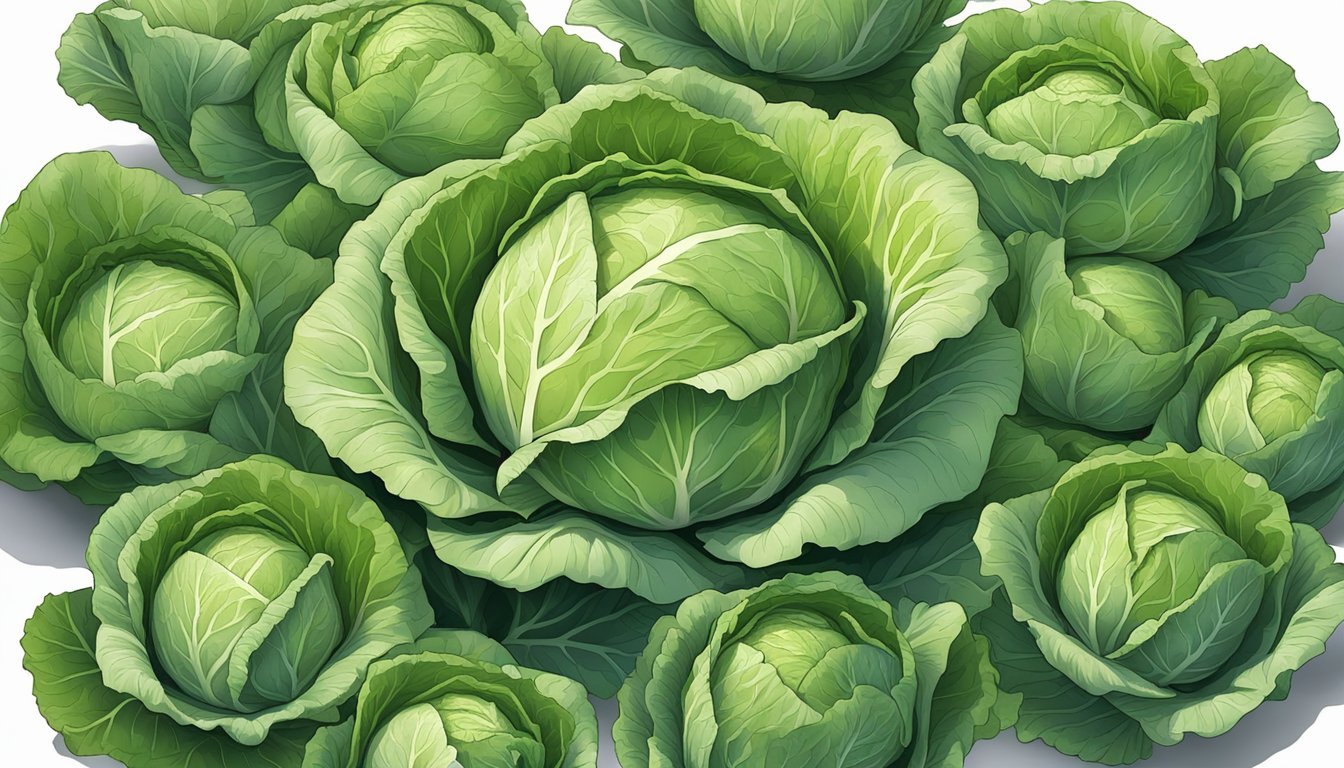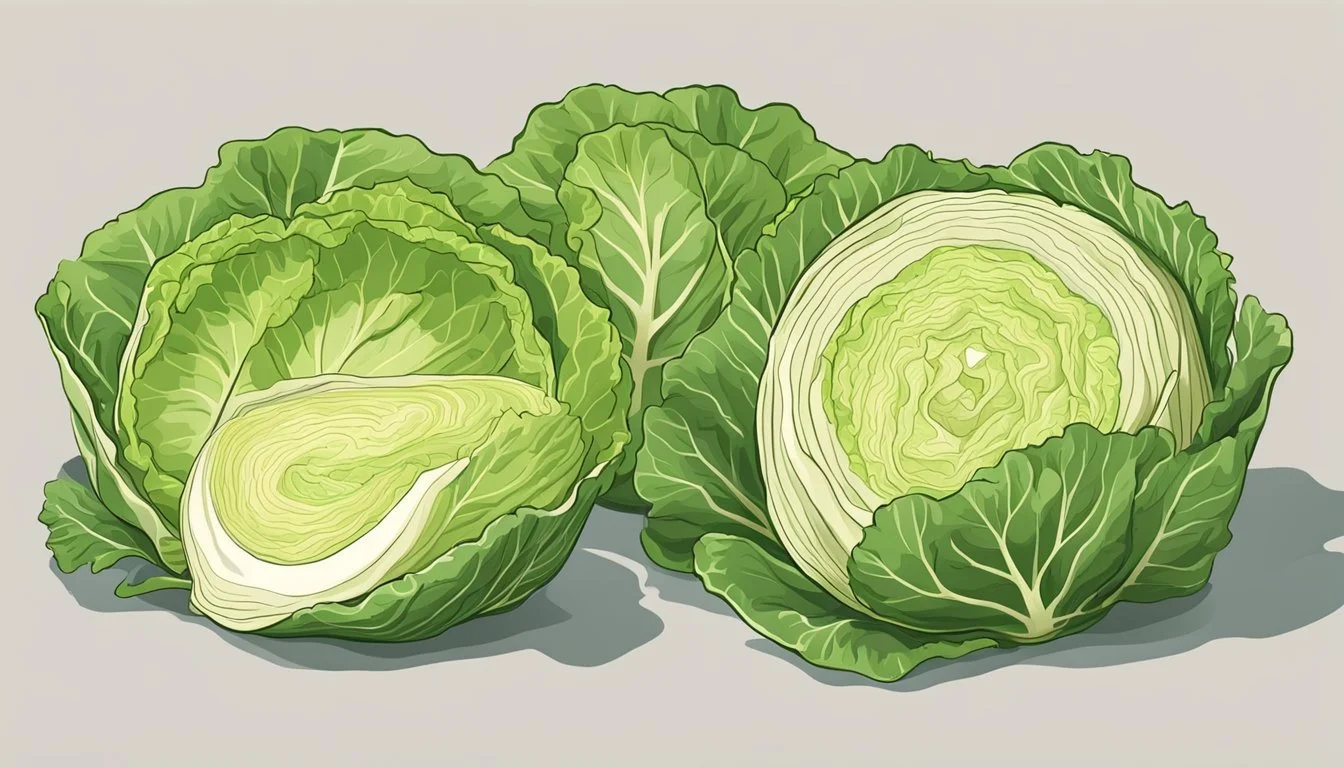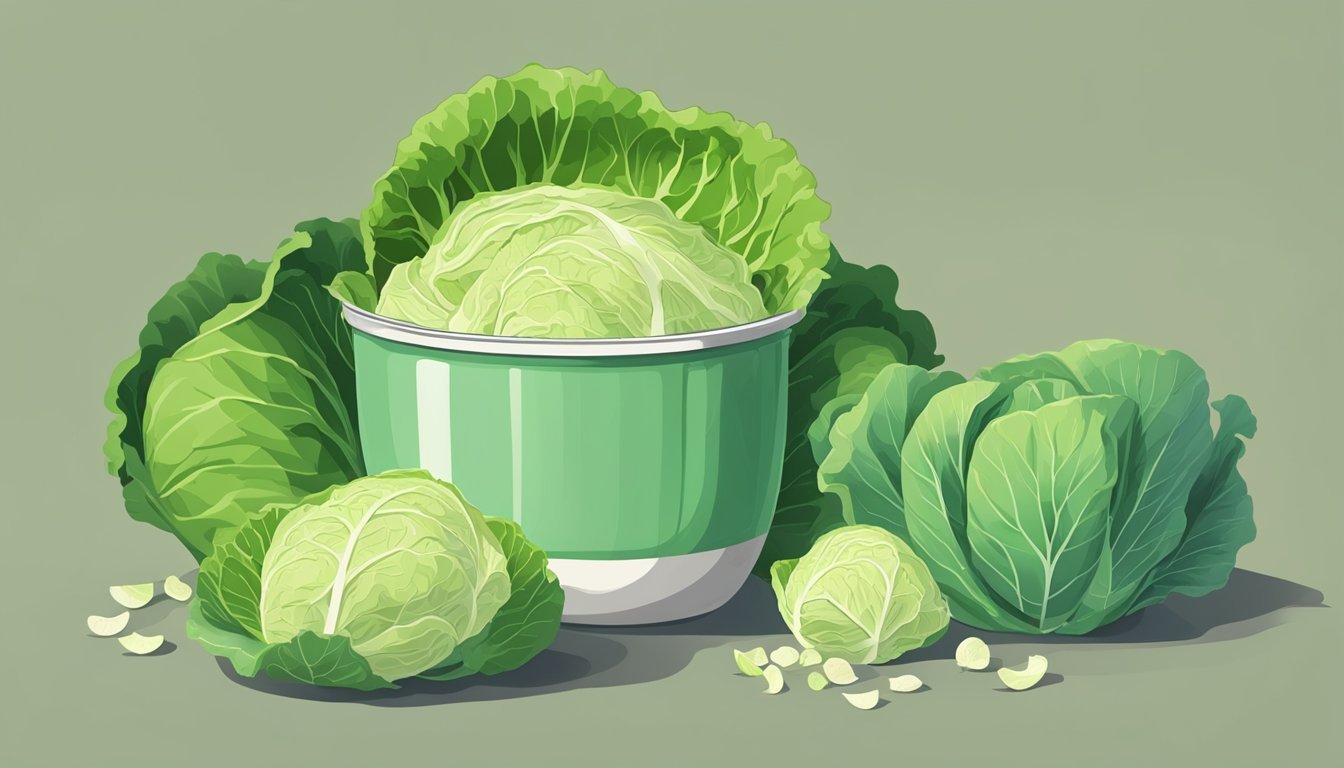How Much Cabbage Per Day Is Too Much?
Understanding Safe Consumption Limits
Cabbage is a nutritious vegetable that offers a range of health benefits when incorporated into one's diet. It is a member of the cruciferous family, along with broccoli and Brussels sprouts, known for its high fiber content and rich supply of vitamins and minerals such as vitamin C and potassium. The consumption of cabbage can support digestive health, contribute to a strong immune system, and may help in managing blood pressure.
However, like with any food, there is a point where the beneficial effects plateau and potentially negative side effects can occur if consumed in excess. Eating large quantities of cabbage can lead to bloating and digestive discomfort, primarily due to its high fiber content. Additionally, cabbage contains compounds called goitrogens, which can interfere with thyroid function if consumed in very high amounts. The key to reaping the benefits of cabbage without the adverse effects lies in moderation.
Health experts typically recommend a serving size of cabbage to be about 1 to 2 cups per day. This portion allows individuals to enjoy the positive aspects of cabbage, including its nutrient density and contribution to overall vegetable intake, while minimizing the risk of uncomfortable digestive symptoms or interference with thyroid activity. Remaining aware of individual tolerance is crucial, as some may be more sensitive to the effects of cabbage consumption than others.
Basic Nutrition of Cabbage
Cabbage, a leafy green, red, or white biennial plant, is a low-calorie vegetable rich in vitamins, minerals, and antioxidants, making it a significant addition to a healthy diet. It is primarily composed of water, contributing to its low-calorie content, with a 100-gram portion offering roughly 25 calories.
Nutrients found in cabbage:
Fiber: An excellent source of dietary fiber, cabbage supports digestive health.
Vitamins: Vitamin C and vitamin K are abundant in this vegetable. Vitamin C is crucial for immune function and acts as an antioxidant, while vitamin K is vital for bone health and blood clotting.
Minerals: It contains minerals such as potassium, which aids in blood pressure regulation.
Protein: Cabbage provides a modest amount of protein.
Breakdown of nutrients per 100 grams:
Nutrient Amount Calories 25 Protein 1.3 g Fiber 2.5 g Vitamin C 36.6 mg Vitamin K 76 µg Folate 43 µg
Additionally, cabbage is a good source of folate, which is linked to reduced risks of certain health conditions, such as heart disease. Its antioxidant properties are derived from vitamin C along with other plant compounds that contribute to overall health. The presence of dietary fiber not only aids in maintaining digestive regularity but also supports balanced cholesterol levels. When incorporated properly into a meal plan, cabbage contributes to the nutritional diversity essential for a well-rounded diet.
Health Benefits of Eating Cabbage
Cabbage is a nutrient-dense vegetable that offers a variety of health benefits due to its rich vitamin content, minerals, and antioxidants. It is also associated with preventive effects against certain diseases and overall digestive support.
Rich Source of Vitamins and Antioxidants
Cabbage is particularly high in vitamin C and vitamin K, essential for the immune system and bone health. It is also a good source of antioxidants such as flavonoids, polyphenols, and anthocyanins, which help protect the body against oxidative stress.
Cabbage in Cancer Prevention
Compounds found in cabbage such as glucosinolates are converted into isothiocyanates and sulforaphane during digestion. Research suggests these have potential cancer-preventing properties, as they may inhibit cancer cell growth.
Digestive Health and Fiber Benefits
High in fiber, cabbage supports digestive health by preventing constipation and promoting gut health. This fibrous content may also aid in maintaining a healthy population of probiotics, beneficial gut bacteria.
Effects on Heart and Blood Pressure
Consuming cabbage can benefit heart health due to its potassium content, which helps regulate blood pressure. Its fiber may also affect cholesterol levels, another important factor in preventing heart disease.
Anti-inflammatory Properties
Cabbage exhibits anti-inflammatory effects thanks to the presence of certain compounds like antioxidants and flavonoids. These properties may help reduce inflammation related to various health conditions.
Dietary Considerations with Cabbage
When incorporating cabbage into a diet, it's important to consider its impact on weight management, its role in a balanced diet, potential allergies or sensitivities it may cause, and its interactions with certain medications like blood thinners.
Weight Management and Caloric Content
Cabbage is a cruciferous vegetable that is often heralded for its low-calorie content, making it an excellent choice for weight management and weight loss efforts. One cup of chopped cabbage typically contains about 22 calories, which is minimal compared to many other foods. Its high fiber content also promotes a feeling of fullness, reducing the likelihood of overeating.
Role in a Balanced Diet
Cabbage can play a vital role in a balanced diet, providing essential nutrients such as vitamins C and K, and glucosinolates, with its anti-inflammatory properties. However, moderation is key since excessive intake may lead to undesirable effects like digestive discomfort due to its fiber content or potential interference with thyroid function.
Potential Allergies and Sensitivities
While uncommon, some individuals may experience allergies or sensitivities to cabbage or other cruciferous vegetables, resulting in symptoms like swelling or discomfort. It's advised to be aware of personal reactions and consult healthcare providers when necessary.
Cabbage and Blood Thinning Medications
Persons on blood thinners, especially warfarin, should monitor their cabbage consumption. This vegetable is rich in vitamin K, which plays a crucial role in blood clotting and can potentially interact with these medications, affecting their efficacy. Careful dietary management is essential in these cases.
Different Ways to Include Cabbage in Meals
Cabbage is versatile and can be enjoyed in various forms, ranging from raw in salads to cooked dishes. It’s a staple among cruciferous vegetables like broccoli, cauliflower, and kale, known for their health benefits.
Raw Cabbage in Salads and Coleslaw
Raw cabbage is commonly shredded and used in salads and coleslaw, providing a crunchy texture and a zesty flavor. It harmonizes particularly well with ingredients like carrots, onions, and dressings, such as vinaigrette or creamy mayonnaise-based sauces. Raw cabbage retains all of its vitamins and is an excellent source of vitamin C and K.
Cooking Methods: Steaming, Sautéing, and Fermenting
When cooked, cabbage can be steamed, sautéed, or even fermented. Steaming cabbage preserves most of its nutrients and is preferred for dishes where a softer texture is desired, like in soups or side dishes. Sautéed cabbage, often combined with garlic and onions, becomes tender and sweet, making it a fitting accompaniment to meats or other vegetables. Fermented cabbage produces foods like kimchi and sauerkraut, offering not only complex flavors but also probiotics beneficial for gut health.
Comparison with Other Cruciferous Vegetables
Cabbage often compares to other cruciferous vegetables like broccoli, kale, and Brussels sprouts. While each has unique nutritional profiles and cooking applications, they all share similar health-promoting compounds. Kale can be used interchangeably in coleslaw or salads for a different flavor, while broccoli and Brussels sprouts often find their place in heartier cooked dishes, bringing a variety of textures and tastes to the table.
Cabbage Consumption: Recommended Intake and Overconsumption
In this section, readers will understand the ideal daily servings of cabbage, the potential side effects of eating too much, and considerations for those with specific health conditions.
Understanding Recommended Daily Servings
The ideal portion of cabbage in a daily diet should align with dietary guidelines for vegetables. According to nutrition experts, an individual can typically consume 1 to 2 cups of cabbage daily. As a cruciferous vegetable, cabbage is an excellent source of dietary fiber, vitamins C and K, and an array of other nutrients.
Serving Size: 1 to 2 cups
Nutrients per Cup (Chopped, Raw):
Calories: 22
Protein: 1g
Dietary Fiber: 5g
Vitamin C: High
Vitamin K: High
Risks and Side Effects of Excessive Consumption
While cabbage is a nutritious vegetable, excess intake may lead to undesirable side effects. A high consumption of cabbage can contribute to digestive discomfort, including gas and bloating, due to its dietary fiber content. Moreover, cabbage contains goitrogens, which may affect thyroid function if consumed in large quantities.
Common Side Effects:
Bloating
Gas
Altered thyroid function
At-risk Populations: People with thyroid conditions
Special Considerations for Certain Health Conditions
Individuals with specific health concerns should adjust their cabbage intake accordingly. For those managing type 2 diabetes, cabbage's low sugar content and high nutrition profile make it a suitable vegetable in moderation. However, those with thyroid issues or at risk of osteoporosis should consider the goitrogens and high vitamin K content, which can influence blood clotting and bone health.
Considerations by Condition:
Type 2 Diabetes: Low sugar content; beneficial in moderation.
Thyroid Conditions: Monitor portion size to prevent interference with thyroid function.
Osteoporosis: Balance intake of vitamin K-rich foods with other dietary needs.







